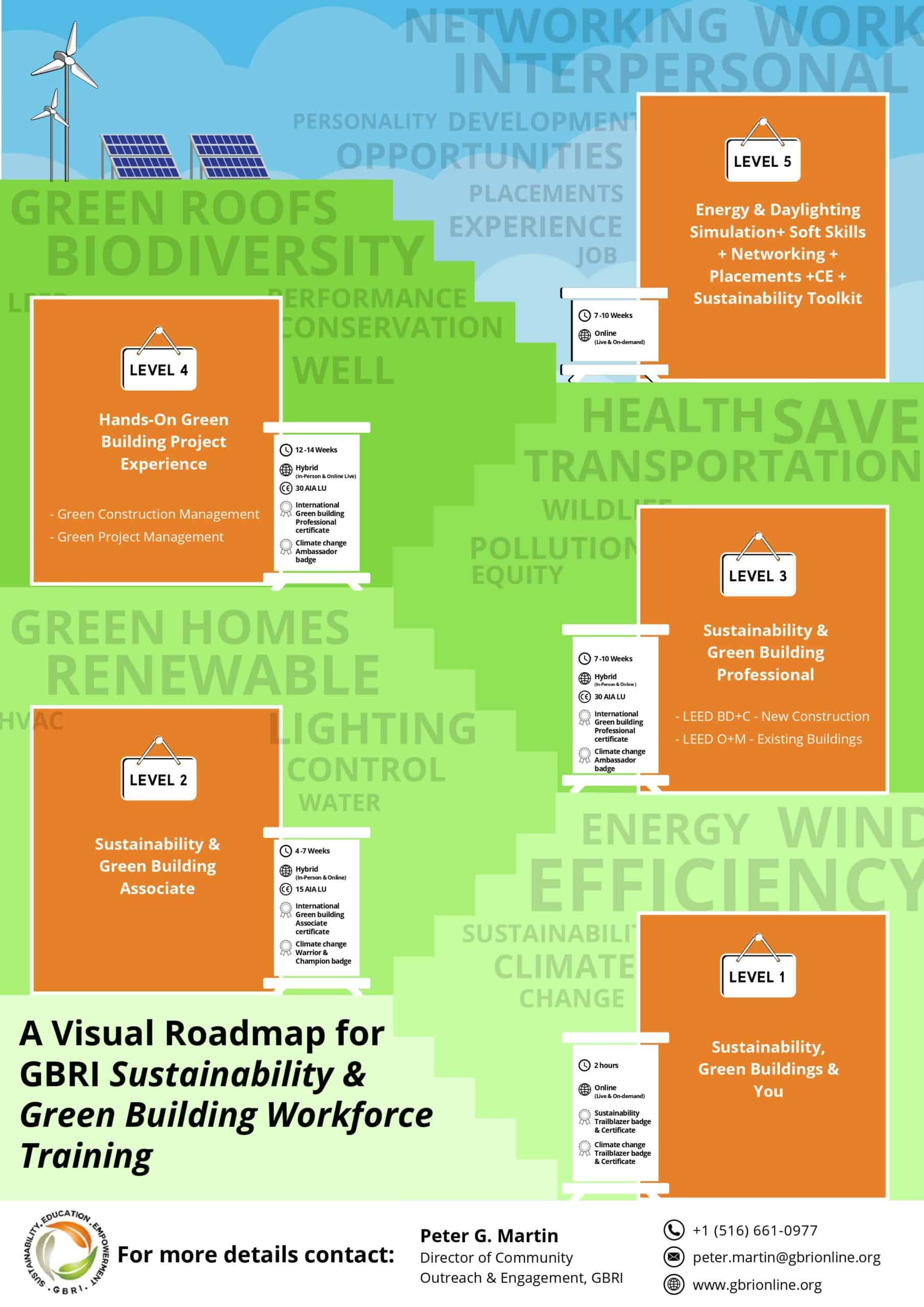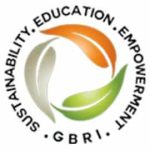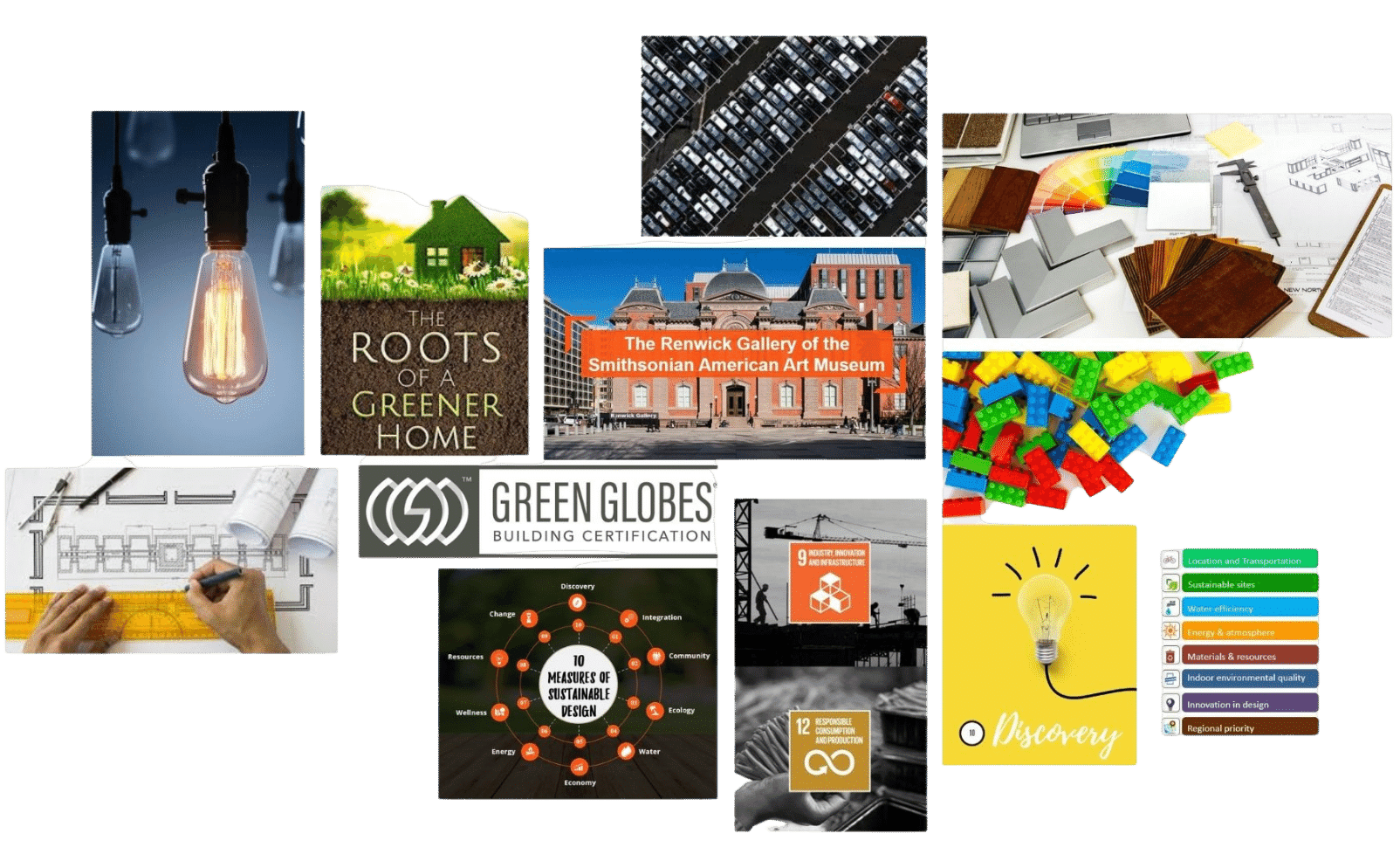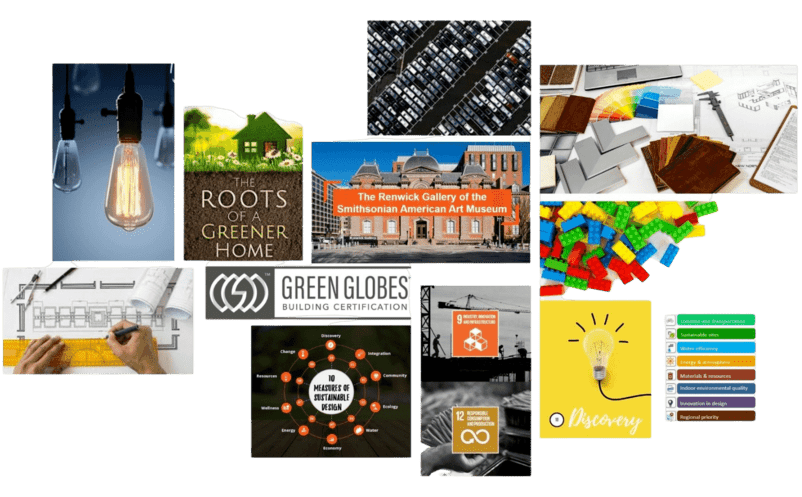GBRI Sustainability & Green Building Workforce Training for Disadvantaged & Priority Communities
The environmental and infrastructure problems we face are as much social as they are technical. From environmental to social impacts, Climate Change is affecting more than just global temperature. Not only does Climate Change impact our daily lives, but it’s also driving us apart. While it’s easy and almost convenient to see the Climate Change problem in a silo, and Climate Change solutions in a silo – it’s much more than that – its environment, biodiversity, economics, social justice – its sustainability of our planet, and the people and all living beings that aim to thrive on it.
Acknowledging the problem, educating ourselves of the opportunities and solutions, and taking meaningful actions is what drives GBRI. Our actions have far-reaching implications. Therefore, we need to act now and bring in a shift in fundamentally how we interact within our communities.
In addition to our mission to make sustainability education accessible and affordable, we also believe that a truly sustainable world must also be an equitable one. In pursuit of creating an equitable world, as a global leader in sustainability and green building education, GBRI is also dedicated in creating sustainable communities around the world through education, empowerment, and partnership. It is also through this mindset that we have been able to align ourselves with likeminded community focused organizations working to shape a more environmentally conscious and socially equitable tomorrow identified in this proposal.
GBRI is working with several community-based organizations in New York City to empower Disadvantaged & Priority Communities through GBRI’s proposed Sustainability & Green Building Workforce Training. The objective of this proposal is to provide these trainings at no cost to students.
The objective of this proposal is to build upon GBRI’s existing sustainability training curriculum to develop and implement a hands-on sustainability workforce training solution, experiential learning, and continued education for students. Through this proposal, GBRI is committed to reducing barriers and making sustainability and green building training accessible to disadvantaged and priority populations.
Training 1 - Sustainability, Green Buildings and You
Duration: 2 hours.
Delivery Format: Online Live and Online On-demand with a multiple-choice quiz
Expected Number of Students: 100 per batch for a total of 400
By the conclusion of this training program, students will be able to:
- Understand the fundamentals of sustainability & green buildings
- Explore the role of green buildings in sustainability, understand the benefits and distinguish the green building process
- Analyze the LEED rating system and how it addresses environmental issues
- Explore job opportunities within the sustainability & green building sector
- Get inspired from a green building case study
- Earn the GBRI Sustainability and Green Building Trailblazer badge
Training 2 - Sustainability and Green Building Associate
Duration: 30 hours total with a suggested roadmap of 4-7 Weeks
Delivery Format – Hybrid (One Day in-Person, Online Live, and On-Demand)
Expected Number of Students: 50 per batch for a total of 200
By the conclusion of this training program, students will be able to achieve:- Strong foundational knowledge in sustainability, green buildings, climate change and clean energy.
- Fundamental knowledge of sustainability initiatives, Net zero buildings and green building rating systems
- Ability to pass the USGBC LEED Green Associate Exam
- Earn 15 AIA Learning Units
- Earn GBRI’s International Sustainability & Green Building Associate Certificate, and badge
- Earn GBRI Climate Change Warrior and Champion Certificate, and badge
- Eligibility for next level
Training 3 – Sustainability & Green Building Professional – New Construction and/or Existing Buildings
Duration: 40 hours total with a suggested roadmap of 7-10 Weeks
Delivery Format – Hybrid (2 Days in-Person, Online Live, and On-Demand)
Expected Number of Students: 35 per batch for a total of 140
By the conclusion of this training program, students will be able to achieve:
- Strong understanding of sustainability concepts as it relates to buildings
- Strong understanding of energy efficient heating, ventilation, and air conditioning (HVAC) and water heating, building electrification, building envelope- insulation and fenestration, energy efficient lighting and controls, and renewable energy systems
- Strong understanding of Existing Building Retrofit using LEED Operations & Maintenance, and GPRO
- Ability to earn the LEED AP credential in Building Design or Operations & Maintenance
- Earn 30 AIA Learning Units
- Earn GBRI’s International Sustainability & Green Building Professional Certificate
- Earn GBRI Climate Change Ambassador Certificate
- Eligibility for next level
Training 4 – LEED Project Experience Experiential Learning – New Construction and/or Existing Buildings
Duration: 100 hours with a suggested roadmap of 12-14 Weeks
Delivery Format – Hybrid (In-Person, Online Live, and On-Demand)
Expected Number of Students: 25 per batch for a total of 100
By the conclusion of this training program, students will be able to achieve:
- Strong technical understanding of sustainability concepts as it relates to buildings
- Strong understanding of energy efficient heating, ventilation, and air conditioning (HVAC) and water heating, building electrification, building envelope- insulation and fenestration, energy efficient lighting and controls, and renewable energy systems
- Strong understanding of Existing Building Retrofit using LEED Operations & Maintenance, and GPRO
- Earn 30 AIA Learning Units
- Earn GBRI’s International Green Construction Manager and/or International Green Project Manager Certificate
Training 5 – Advanced Training on Energy and Daylighting Simulation Using Computer Programs + Softskills
Duration: 100 hours with a suggested roadmap of 7-10 Weeks
Delivery Format – Online Live and On-Demand
Expected Number of Students: 25 per batch for a total of 100






